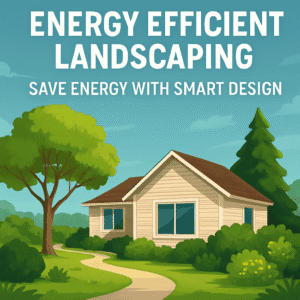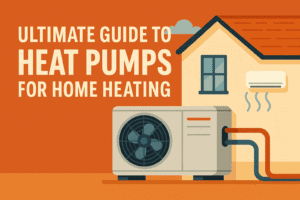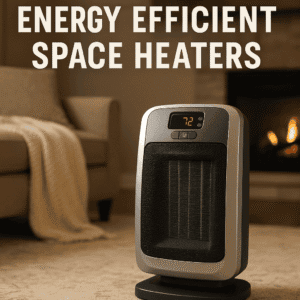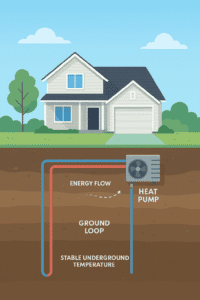Top 5 Energy-Efficient Appliances for 2025: Save Power, Save Money
Introduction: Why Energy-Efficient Appliances Matter in 2025
As energy prices continue to climb and climate change becomes more urgent, homeowners are seeking smarter ways to cut down on electricity usage. One of the best ways to make a lasting impact is by upgrading to energy-efficient appliances. These devices are not just great for your monthly utility bill—they’re also an investment in long-term sustainability.
In this roundup, we’ll walk you through the top 5 energy-efficient appliances for 2025, highlighting their features, benefits, and how they can fit into your modern home.
✅ What Makes an Appliance Energy-Efficient?
Before diving into the list, let’s understand what makes an appliance “energy-efficient.”
- ENERGY STAR Certification: A government-backed symbol for energy efficiency.
- Low Wattage Consumption: Consumes less power than traditional models.
- Smart Sensors: Adjust operations based on usage and load.
- Eco Modes: Minimizes power usage during idle time.
- Advanced Motors: Inverter and brushless motors increase efficiency.
🔍 How We Chose These Appliances
We reviewed dozens of top-rated appliances based on:
- Energy Star ratings
- Annual energy consumption (kWh/year)
- Real customer reviews
- Price-to-performance ratio
- Smart home compatibility
- Environmental impact
🥇 1. LG ThinQ InstaView Refrigerator – Best Overall Smart Fridge
Key Features:
- ENERGY STAR® certified
- Door-in-Door with InstaView panel to reduce cold air loss
- Wi-Fi enabled for remote control via app
- Smart diagnosis and auto-adjust cooling
Why It’s Efficient:
The InstaView panel lets you see inside without opening the door, minimizing energy loss. Combined with LG’s linear compressor, this fridge uses up to 30% less energy than conventional models.
Ideal For:
Families and smart home users looking to cut food waste and electricity costs.

🥈 2. Samsung Bespoke AI Laundry Washer – Best Smart Washer
Key Features:
- AI-powered cycle optimization
- 4.5 cu. ft. capacity with SuperSpeed technology
- ENERGY STAR® certified
- EcoBubble™ technology for deep cleaning at lower temps
Why It’s Efficient:
The AI learns your laundry habits and optimizes wash cycles, using just enough water and power for each load. EcoBubble™ cleans even in cold water, reducing heating costs.
Ideal For:
Tech-savvy households looking to combine efficiency with convenience.
🥉 3. Bosch 800 Series Dishwasher – Best Quiet Dishwasher
Key Features:
- ENERGY STAR® Most Efficient 2025
- EcoSilence motor for ultra-quiet operation
- PrecisionWash™ sensors
- Half-load and eco modes
Why It’s Efficient:
Uses as little as 2.9 gallons of water per cycle and includes multiple energy-saving modes. Soil sensors detect dirt levels and adjust power accordingly.
Ideal For:
Eco-conscious homeowners who run their dishwasher frequently.
🧊 4. Dyson Hot+Cool Purifier HP10 – Best Energy-Efficient Air Purifier
Key Features:
- HEPA H13 filtration + activated carbon
- Hot + Cool dual function
- Auto mode and real-time air quality sensor
- Night mode and energy-saving standby
Why It’s Efficient:
The Dyson HP10 uses less power than traditional air conditioners or heaters and filters air with high precision. Auto-shutoff saves energy during inactive periods.
Ideal For:
Apartments or rooms needing year-round climate and air quality control.
🍳 5. GE Profile Smart Induction Cooktop – Best for the Kitchen
Key Features:
- Rapid heating using induction coils
- Pan detection and auto-shutoff
- Wi-Fi and voice control with Alexa/Google Assistant
- ENERGY STAR® certified
Why It’s Efficient:
Induction cooktops are 90% energy-efficient (vs. 70% for gas). The GE Profile model adds smart tech to optimize power draw and cook times.
Ideal For:
Modern kitchens seeking sleek, safe, and efficient solutions.
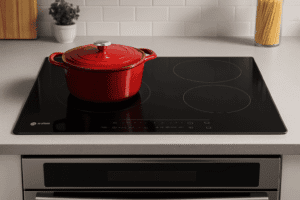
💡 Comparative Table: Top 5 Appliances Overview
| Appliance | Energy Use (Annual) | Best Feature | Price Range |
|---|---|---|---|
| LG ThinQ InstaView Fridge | 685 kWh/year | Door-in-Door + Smart Cooling | $2,000–$2,500 |
| Samsung Bespoke Washer | 105 kWh/year | AI-powered Cycles | $900–$1,200 |
| Bosch 800 Dishwasher | 240 kWh/year | Ultra Quiet + Smart Sensors | $1,000–$1,400 |
| Dyson HP10 Air Purifier | 360 kWh/year | Heating + Cooling Combo | $600–$750 |
| GE Induction Cooktop | 180 kWh/year | Rapid & Smart Heating | $1,100–$1,500 |
🧠 What to Consider When Buying Energy-Efficient Appliances
Before buying, keep these points in mind:
- Energy Guide Label: Compare energy usage estimates.
- Your Usage: A smart washer saves more for larger families.
- Installation Costs: Some appliances require electrical upgrades.
- Rebates: Check for local government or utility rebates.
⚙️ Smart Tech Integration: More Than Just Energy Saving
Many 2025 appliances offer:
- Remote control via app
- Maintenance alerts
- Usage monitoring
- Voice assistant compatibility
These features help you optimize usage and identify inefficiencies over time.
🌍 Environmental Impact of Energy-Efficient Appliances
Switching to energy-efficient models can reduce your home’s carbon footprint by 20-30% annually, especially when replacing outdated appliances.
- Less CO₂ emission
- Reduced landfill waste
- Lower demand on power plants
💬 Real-World Testimonials
“Upgrading to the Bosch dishwasher cut my water and power bills by at least 25%! Quiet, efficient, and sleek.”
— Mina R., San Francisco
“The Samsung washer is practically a robot. It figures out the best wash settings and saves me so much time and energy.”
— Chris D., Austin
🛠️ Final Thoughts: Invest in the Future
Choosing energy-efficient appliances in 2025 isn’t just a trendy move—it’s a smart one. With intelligent technology, advanced energy-saving features, and sleek designs, these appliances offer long-term savings, better performance, and peace of mind.
Whether you’re remodeling your kitchen or upgrading your laundry room, consider these top 5 picks to future-proof your home while lowering your bills.
🔗 Related Posts You May Like:
- How to Perform a Home Energy Audit: Step-by-Step Guide
- Best Insulation Materials for Energy Savings in 2025
This post was on Top 5 Energy-Efficient Appliances for 2025. Energy-Efficient Appliances for 2025 are the way forward in 2025.
❓ Frequently Asked Questions (FAQ)
What are the most energy-efficient appliances for 2025?
The most energy-efficient appliances in 2025 include Energy Star-certified refrigerators, front-load washing machines, inverter ACs, smart dishwashers, and induction cooktops. These models offer the latest technology to reduce power consumption and lower utility bills.
How do energy-efficient appliances save money?
They use advanced features like inverter technology, eco-modes, and smart sensors to optimize energy usage, reducing electricity consumption by up to 30–50%, depending on the appliance.
What is the Energy Star rating?
Energy Star is a government-backed certification that identifies products meeting strict energy efficiency guidelines. Appliances with this label consume less energy and are environmentally friendly.
Are smart home appliances more energy-efficient?
Yes, smart appliances let you monitor and control energy usage through apps, optimize operation times, and often include power-saving modes, making them more efficient than traditional appliances.
Do energy-efficient appliances cost more upfront?
Initially, they may have a higher purchase cost, but they offer significant savings over time through reduced energy bills and often qualify for government rebates or tax credits.
Which appliance should I upgrade first for the biggest impact?
Start with your HVAC system or refrigerator—these are among the biggest energy consumers in a home. Upgrading them can lead to substantial savings immediately.
Can I get rebates for buying energy-efficient appliances?
Many local and national programs offer rebates or incentives for Energy Star-certified appliances. Check with your local utility company or energy department.
Is it worth replacing an old appliance that still works?
If it’s more than 10 years old, the energy savings from a new, efficient model can outweigh repair costs and ongoing energy waste.



